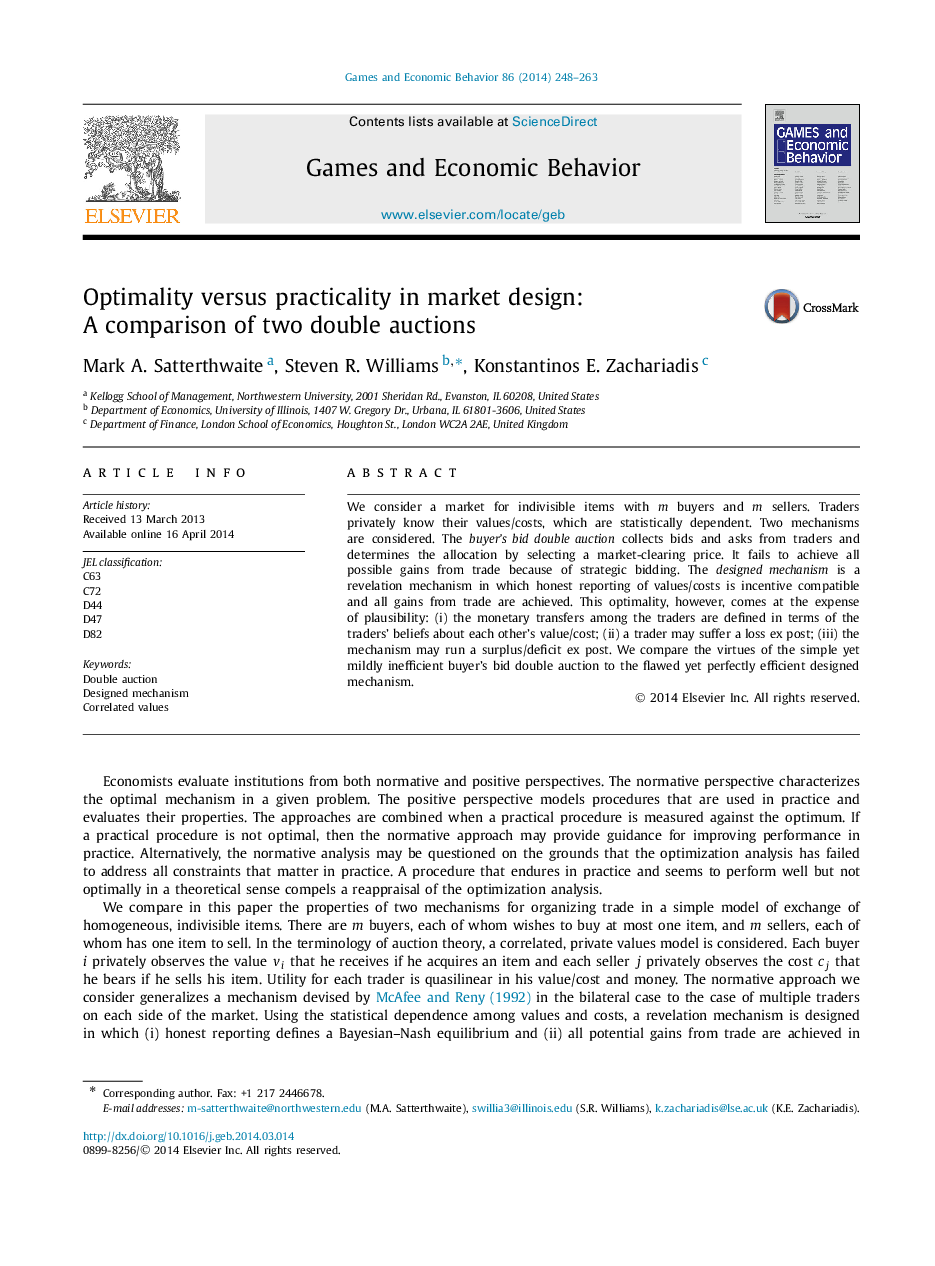| Article ID | Journal | Published Year | Pages | File Type |
|---|---|---|---|---|
| 5071703 | Games and Economic Behavior | 2014 | 16 Pages |
Abstract
We consider a market for indivisible items with m buyers and m sellers. Traders privately know their values/costs, which are statistically dependent. Two mechanisms are considered. The buyer's bid double auction collects bids and asks from traders and determines the allocation by selecting a market-clearing price. It fails to achieve all possible gains from trade because of strategic bidding. The designed mechanism is a revelation mechanism in which honest reporting of values/costs is incentive compatible and all gains from trade are achieved. This optimality, however, comes at the expense of plausibility: (i) the monetary transfers among the traders are defined in terms of the traders' beliefs about each other's value/cost; (ii) a trader may suffer a loss ex post; (iii) the mechanism may run a surplus/deficit ex post. We compare the virtues of the simple yet mildly inefficient buyer's bid double auction to the flawed yet perfectly efficient designed mechanism.
Related Topics
Social Sciences and Humanities
Economics, Econometrics and Finance
Economics and Econometrics
Authors
Mark A. Satterthwaite, Steven R. Williams, Konstantinos E. Zachariadis,
